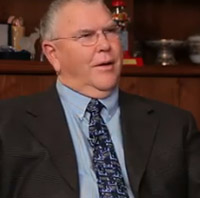Things to Consider for Your 2015 Capital Gains Tax
There are all kinds of investors in the world. Some are looking to make a quick buck by buying and then quickly selling stocks as soon as they increase in value. Other investors buy stocks with an eye toward the future, which means they are in it for the long haul.
In any case, anyone who invests wants to be successful at it. It’s a great feeling to buy stock in a company and see that stock increase in value. However, at some point if you plan on selling that stock and cashing in or your gains, you will have to give a portion of those gains to the taxman. What percentage you will owe will depend on the size of your gain and how long you have owned the stock.
The government wants investors to hold onto their stocks longer. To encourage this they have a lower tax percentage on stocks held longer than a year. Whether you’re a quick turnaround trader or a long-term investor here’s what you should be aware of in 2015 for your capital gains taxes.
First, generally all you need to know to determine your capital gains is the difference between what you paid for the stock and how much you sold it for. When you know that amount then you can calculate the tax. Your tax rate will depend on which bracket you’re in. There are three that apply:
- If your ordinary income puts you in the 10-15 percent tax bracket, then your long-term capital gains rate is 0 percent.
- If your ordinary income falls in one of the 25, 28, 33, or 35 percent tax brackets then your long-term capital gains rate is 15 percent.
- If your ordinary income is in the 39.6% tax bracket, then your long-term capital gains rate is 20%.
There are a few other caveats to remember. For high-income earners, there is an additional 3.8 percent surtax on net investment income. Also, you only pay taxes on the net of your capital gains, which can make a big difference if you sell more than one stock in a year. If you want to learn more about capital gains taxes then please contact GROCO for more answers. Click here or call us at 1-877-CPA-2006.
Wally Hawley on American Dreams
Interview Transcript of: Wally Hawley on American Dreams Alan This is Alan Olsen American Dreams, the keys to life success where we talk about how to live the life that you want to live. Nadine And this is needing camera. What are your dreams? What do you want out of life and what define…
CA Tax Issues | Kitty Wright
CA Tax Issues | Kitty Wright We hope you found this interview about “CA Tax Issues | Kitty Wright” enjoyable. To receive our free newsletter, contact us here. Subscribe our YouTube Channel for more updates. This transcript was generated by software and may not accurately reflect exactly what was said. Alan Olsen, is the Host of the…
The Jelly Belly Legacy | Herman G Rowland
Episode Transcript of: The Jelly Belly Legacy | Herman G Rowland Alan Welcome back. I’m here today visiting with Pam rollin. He’s the chairman of the board of the Jelly Belly company here in Fairfield, California. Welcome to today’s show. Herman Thank you, Alan. Glad to be here. Alan So tell me your background,…
State of the Valley | Roger Royse
State of the Valley | Roger Royse Transcript: Welcome to American Dreams keys to success with your host, Alan Olsen. Alan 0:05 Welcome back. I’m here today speaking with Russell Hancock. He’s the president and CEO of joint ventures, Silicon Valley. Welcome to today’s show. Thank you. Delighted to be Russell, give me some background…




